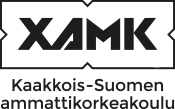Technological business solutions (5 cr)
Code: IB00CP41-3004
General information
Enrollment
14.12.2020 - 14.01.2021
Timing
01.01.2021 - 02.05.2021
Number of ECTS credits allocated
5 op
Virtual portion
3 op
RDI portion
3 op
Mode of delivery
40 % Contact teaching, 60 % Distance learning
Teaching languages
- English
Degree programmes
- Degree Programme in Digital International Business
Teachers
- Jagat Kunwar
Teacher in charge
Jagat Kunwar
Groups
-
IBKV19SP1Digital international business, International marketing
-
IBKV19SP2Digital international business, Global supply chain management
Objective
You are able to?
describe the specific concepts and strategic advantages of e-commerce?
outline the e-commerce demands of consumers?
plan an e-commerce store?
understand the Enterprise Resource Planning (ERP) system??
Content
How are the digital environment of online store and technological tools utilised??
What are the principles of online stores and how can mobile applications be used??
What are the main strategies in e-commerce??
How to use ERP?
Materials
The lecture notes in the course page summarize key information from various sources. Regular attendance in classes and completing assigned tasks must be enough to achieve the learning objectives. Since the course deals with eclectic problems, there is no definite course literature. The basics of several problem specifications will be dealt during lecture hours. However, any elementary textbook related to quantitative business methods or operations management can work as preliminary background for the course. Some suggested textbooks are as follows:
· Krajewski, L. J., Malhotra, M. K. & Ritzman, L. P., 2012. Operations Management: Processes and Supply Chains. Ninth Ed. New Jersey: Prentice Hall
· Waters, D., 2011. Quantitative Methods for Business. Fifth ed. Harlow: Pearson.
Teaching methods
The objective of the course is to learn quantitative modelling with the help of appropriate information systems packages (e.g. Excel, SPSS). The ranges of problems explored are relevant to supply chain and operations management in general. More precisely, the learning objectives are to:
· Identify operational issues amenable to quantitative modelling
· Explain theoretical principles behind the problems and models
· Differentiate analytical versus simulated techniques
· Use appropriate tools to obtain solutions for specified problems
· Interpret results and apply in business decision making
Exam schedules
The maximum number of points for the course is 100, broken down as follows:
· Final quiz done individually and implemented in the course page (50%)
· Five tasks done individually or in groups (50%)
· Attendance, bonus (10%)
To pass the course, you must:
· Complete each item of assessment listed above
· Attain at least half of the available points for each item of assessment listed above.
· No exceptions will be made to these minimum requirements
Evaluation scale
1-5
Qualifications
Supply chain management 5 ECTS credits
